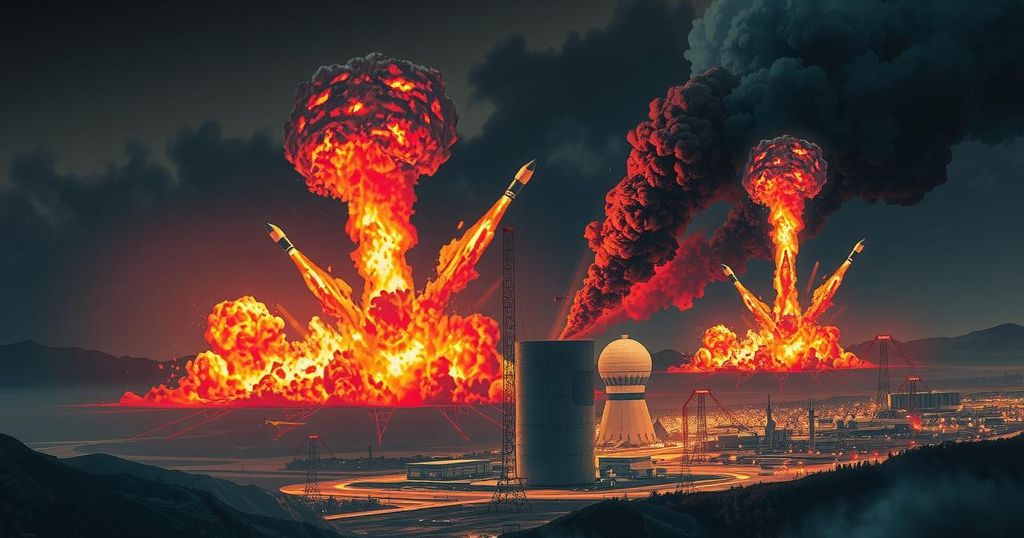Could North Koreans Working in Iran Have Been Killed or Wounded in the Weekend’s Attacks?
The U.S. strikes on Iranian nuclear sites raise concerns about the potential casualties among North Koreans working there. Bruce Bennett of RAND notes the involvement of North Koreans in Iran’s nuclear efforts, which Kim Jong-un may be reluctant to acknowledge. This situation has prompted South Korea’s President to enhance emergency responses given the escalated tensions. Meanwhile, North Korea’s status as an actual nuclear power complicates the dynamics further.
Over the weekend, the U.S. launched attacks on Iran’s nuclear sites utilizing B-2 bombers and Tomahawk missiles, leading some to question whether North Koreans working in Iran were harmed. Bruce Bennett, a seasoned analyst at the RAND Corporation, believes it is possible. “North Koreans are still in Iran helping Iran with its nuclear weapon and missile programs,” he remarked. If any North Koreans were killed, it might provoke Kim Jong-un to retaliate against the U.S.
North Korea publicly condemned the attacks as a violation of the UN charter. However, Pyongyang has never openly confessed to aiding Iran’s nuclear activities. Bennett indicates that Kim may avoid admitting his experts are involved in Iran’s program due to fears of being targeted himself. “He may be very reluctant to admit that his experts are helping Iran,” he stated, highlighting potential repercussions for North Korea’s own nuclear capabilities.
In light of these tensions, South Korean President Lee Jae Myung canceled his NATO meeting and set up an emergency response system to tackle heightened issues arising from the Middle East. The ongoing conflict, which began when North Korea invaded South Korea on June 25, 1950, continues to impact regional security. Reports suggest that Kim is receiving assessments about the attacks on Iran’s deeply entrenched nuclear site, Fordow, and their potential implications for his own facilities.
According to Evans Revere, a former senior U.S. diplomat in Seoul, “North Korea has dozens of nuclear warheads stored and dispersed around the country,” and any U.S. strike is unlikely to destroy all of them. He emphasizes that unlike Iran, North Korea poses an actual threat as a nuclear power. Revere notes that it is intentional for North Korea to rapidly expand its nuclear programs.
In summary, the fear that U.S. actions against Iran could impact North Korea’s nuclear ambitions is palpable. The possibility of North Koreans being impacted by these attacks raises concerns of escalation, particularly with Kim Jong-un’s strategic calculations. Furthermore, North Korea’s established nuclear arsenal presents a stark contrast to the situation with Iran, demonstrating the complexities of regional security and the long-standing tensions on the Korean Peninsula.
Original Source: www.nysun.com




Post Comment